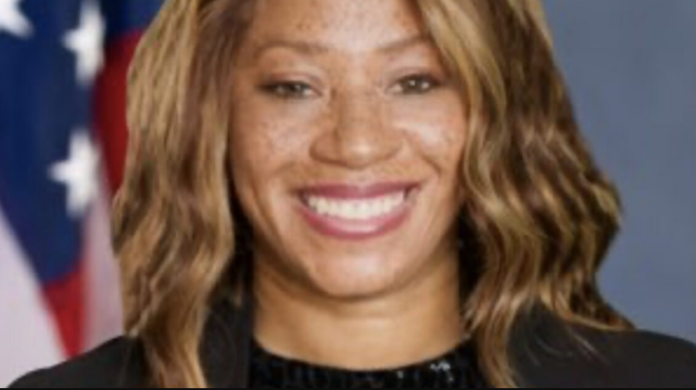A Georgia legislator made an announcement indicating her decision to change her political affiliation to the Republican Party. This event reflects a growing pattern of Democratic officials leaving their party in various state legislatures nationwide.
On Tuesday, Mesha Mainor, a newly-elected member of the House in 2021, made public her decision to leave the Democratic Party. This choice came about after facing criticism from her colleagues due to her support for a school choice bill.
Mainor stated, “When I decided to stand up on behalf of disadvantaged children in support of school choice, my Democrat colleagues didn’t stand by me. For decades, the Democrat Party has received the support of more than 90 percent of the black community. And what do we have to show for it? I represent a solidly blue district in the city of Atlanta. This isn’t a political decision for me. It’s a moral one.”
Meet Georgia Rep Mesha Mainor. She’s a lifelong democrat who worked with congressman John Lewis and has been fighting to help the black community. Today she announced that she will be leaving the Democrat party and becoming a Republican.
— 🇺🇸Travis🇺🇸 (@Travis_in_Flint) July 11, 2023
When asked about pushback from… pic.twitter.com/newERgkmWi
Mainor highlighted the dire situation in schools within her district, where the reading proficiency rate stands at a mere 3 percent and students struggle with basic math skills. Despite her vote in favor, Georgia Senate Bill 233, which aimed to provide vouchers to students from underperforming schools to facilitate their transfer to private schools or homeschooling, failed to pass.
Mainor’s departure from the Democratic Party is part of a growing trend. Since March, four other Democrats at the state level have also made the decision to switch parties.
In April, Elliott Pritt, a freshman representative from West Virginia, changed his affiliation, explaining that he could no longer support or advocate for issues that the majority of his constituents did not back.
In March and April, Louisiana experienced the departure of two Democratic representatives, Jeremey LaCombe and Francis Thompson, who switched their political affiliation to become Republicans. This transition resulted in the Republican Party attaining a supermajority in the state legislature. Notably, Thomas, who had been a Democrat for nearly five decades, made this significant shift in allegiance.
Earlier this year, Tricia Cotham, who previously served as a representative from 2007 to 2017 and returned to the North Carolina House in January, made the decision to switch to the GOP. Cotham expressed that the present-day Democratic Party no longer aligns with her principles and values.
Cotham cited instances of bullying and attempts to exert control by her former party, including personal attacks directed towards her children. Her party switch proved significant as it provided the state House Republicans with the necessary 72 votes to override a potential veto from Democratic governor Roy Cooper.




